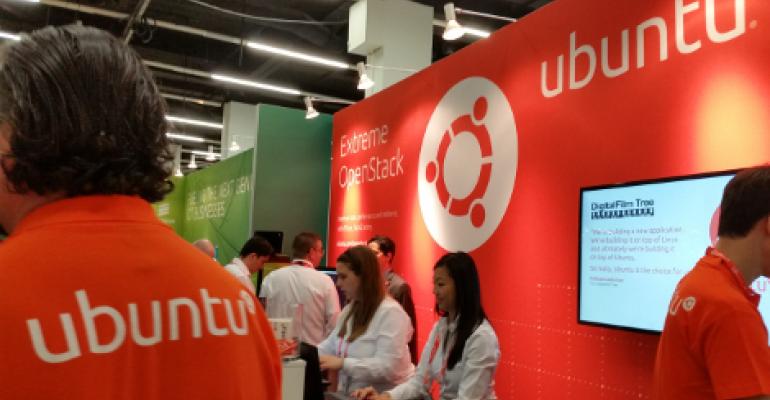Getting support for Ubuntu just got cheaper and easier. Last week Canonical, Ubuntu's parent company, announced Ubuntu Advantage for Infrastructure, an enterprise security, compliance, and support offering that offers support for up to 10 years. The high-tier flavor of it also includes support for OpenStack, Kubernetes, and other open-source software.
"Enterprise" would be the key word with this offering. If you're running Ubuntu's desktop edition on an old box you've set aside to play shoot'em-up games, this isn't for you. But if you're running Ubuntu Server, whether on-premises, in one or more public clouds, or a combination of both, Ubuntu's got your back.
"Ubuntu Advantage for Infrastructure is our consolidated single price per node subscription for Canonical customers," Stephan Fabel, Canonical's head of product, told Data Center Knowledge. "It encompasses all of our bitstream services that we provide to our customers, for example the extended security maintenance, kernel live patch, system services or libraries, and more."
This should be especially good news for DevOps and admins using Ubuntu who regularly deploy open source applications. Ubuntu Advantage doesn't just offer support for Canonical-branded products but also for a long list of open source applications that are commonly deployed in data centers. This means that if you're using OpenStack or Kubernetes, no matter where you got them from, Ubuntu will support them.
"The big news here is that we're consolidating all of open source infrastructure into that one price," Fabel said. "So when you roll out a KVM cluster and change your mind and want to turn that into a Kubernetes cluster, or you want to roll out OpenStack, there's no additional charge and no additional engagement with the vendor necessary. As long as those nodes are covered with UA for Infrastructure, we will support our customers."
The support structure takes a two-tiered approach: Standard and Advanced. Both levels include technical support for open infrastructure, the development of long-term fixes to specific defects, and legal assurance. The main difference seems to be the availability of support. Support for standard-level customers is available only during business hours, while advanced-tier customers receive support 24/7.
For those who don't need technical support there's a third "Essential" level that offers no support but supplies kernel live patches and security fixes for system services and libraries, including OpenStack, Kubernetes, Ceph, SWIFT, and some infrastructure management and operations capabilities.
Canonical CEO Mark Shuttleworth indicated in a statement that lower-priced and simplified support was made possible by a recent uptick in the number of Ubuntu support customers.
"A surge of customers adding Ubuntu to their list of officially supported operating systems has given us the volume to simplify our infrastructure security and support offering and lower the average cost per machine even further," he said.
Monetizing the Most Used Server OS
There's probably more to the story, however. The essence of this move seems to be to help monetize Ubuntu instances running without support contracts on public clouds.
Unlike Red Hat and SUSE, instances of Ubuntu can be spun up in public clouds without a support contract, and the free use of Ubuntu on Amazon Web Services and the like has made this Linux distribution by far the most used server operating system on the planet. The problem is that being number-one while you're giving it away for free doesn't pay the rent.
It's not known how many AWS cloud users are paying for support (Canonical is privately held and doesn't release financial figures), but most industry insiders think that number to be very low. Most estimates put the company's annual revenue at about $90 million.
What is known is that at last week's Open Infrastructure Summit in Denver, Shuttleworth said one of the goals he'll need to reach before he can launch an IPO for Canonical is "$200 million plus in revenue," ZDNet reported. Even at that figure, Canonical will be far behind both Red Hat, with revenue of over $3 billion, and SUSE, with an estimated revenue of nearly $400 million.
In addition to support, Ubuntu Advantage for Infrastructure has a managed infrastructure offering for DevOps teams who'd like to concentrate on their deployment pipelines instead of data center maintenance. This includes fully managed OpenStack; fully managed Kubernetes on bare metal, OpenStack, VMware and public clouds; and fully managed storage infrastructure.





